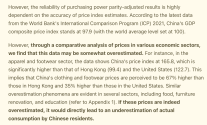35-year-old American moved to Chengdu and lives on $30,000 a year: ‘[It’s] poverty in America, but in China I’m living large’
In her late 20s, Aleese Lightyear worked in reality TV production and lived in New York City, which she thought was her dream.
“At the height of my career in New York, I was probably making $100,000 a year [and] working eight months out of the year, which on paper sounds great, but New York City is one of the world’s most expensive cities, so that $100,000 went extremely fast,” Lightyear tells CNBC Make It.
“I was spending all of my money going out and buying clothes so that I could be trendy and feel like I was living in the ‘Sex and the City’ New York City dream.”
As her 30th birthday approached, Lightyear realized she was still working 70 to 80 hours a week, but didn’t have any retirement savings. And because she was a freelancer, she didn’t have benefits or health insurance.
“I should have been saving for those things. I was living check to check, which sucked. My last few years living and working in New York City were some of the most stressful years of my life,” she says.
“I came up with this idea that I wanted to leave New York because I was tired of working 70 hours a week for ten years. Being in my 20s, I felt like a 50-year-old woman.”
One day, Lightyear woke up and searched, “How do I make money and travel the world?” The first result was about teaching English. After speaking with a coworker who had taught in South Korea, Lightyear began researching what it would entail to teach overseas with no prior experience.
“I kind of put that on pause because I just wasn’t sure if that was right for me. It took me about two years to make the decision that I wanted to become a teacher,” she says. “Google told me I just needed a TEFL certificate to teach English to foreign language learners, so I enrolled.”
Lightyear completed a 13-week program to earn her Teaching English as a Foreign Language (TEFL) certification, initially setting her sights on South America. She quickly changed course, however, deciding that if she was going to leave her life in New York behind, she would go as far as possible.
“If I’m going to move all the way across the world, I better go to the furthest country that I know absolutely nothing about and have a full adventure, and China just seemed like pure adventure, fun, excitement, and great money,” Lightyear says.
“I’m someone who has traveled a lot but I’d never been to Asia before, so I didn’t really know what to expect and to be honest, my first few days were just a huge blur because there was so much culture shock.”
Lightyear, 31 at the time, made her official move to Beijing, China in 2019 — and she hasn’t looked back. She lived in the Chinese capital for four years before moving to Chengdu, where she is a teacher at a university. Lightyear works 18 hours a week, four days a week and has a yearly salary of about $30,000 USD.
″$30,000 a year is poverty in America but in China, I’m living large,” she says.
Her typical work week is entirely different than it was in New York. In China, she works Mondays, Tuesdays, Thursdays, and Fridays, offering two to three classes a day. Some of her benefits include free health insurance, a travel stipend, a rent stipend, a flight allowance and two months of paid summer and winter vacation.
Lightyear took a pay cut when she left her job in Beijing for one in Chengdu. But her life in Beijing had started to feel too similar to her time in NYC, so she has no regrets.
“I didn’t move all the way across the world to work as much as I did in New York,” she says.
“My current work-life balance is a dream. I’m able to have time to do so many different hobbies, to take the time to actually learn the language and to do whatever I want when I want, and that feels amazing. I just feel so lucky and happy to be able to have so much time to myself.”
In Chengdu, Lightyear lives in a pre-furnished three-bedroom, one-bathroom apartment with a balcony and laundry room. Because of the rent stipend she gets, Lightyear only has to pay $278 a month for her accommodations.
Lightyear supplements her income as a teacher with content creation and an active YouTube channel. Both of those things allow her to save up to $1,000 a month. It’s something she was never able to do living in the U.S.
Now that she’s been living in China for over five years, Lightyear says when she visits the U.S., she experiences reverse culture shock. She’s almost always having to explain to friends, family and strangers why her life now is so much better there than it was before.
“For the typical American, there is a lot of confusion and misinformation about what life is truly like in China, but I feel completely safe as a woman, as a woman of color, being independent, doing anything. I feel very at ease in this country,” she says.
Though she feels comfortable in China, Lightyear says that because the country is so homogeneous, as a person of color she “sticks out like a sore thumb,” and it does bother her at times.
“I probably cannot go an hour being outside without someone pointing at me and saying, in Chinese, ’there’s a black person, look, there’s a foreigner,” she says. “If I’m going to a touristy spot, the amount of people who take photos of me while I’m not looking or will ask me to take photos, then next thing I know, there’s a line of people who want to take photos with me.”
Despite those uncomfortable moments and the time it’s taken to adjust to Chinese culture, Lightyear says her self-confidence has skyrocketed.
“I still face a lot of challenges [and] there are so many things I still have no idea about, and in the very beginning, that was the hardest part,” she says. “You know the saying that if you can make it in New York, you can make it anywhere? Well, throw that away and apply it to China. If you can make it in China, you can truly make it anywhere. I feel fearless and like there’s nothing I can’t do.”



